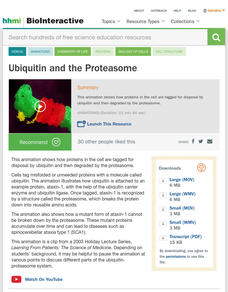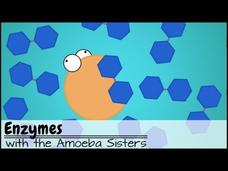Bloomberg
Session 2 Closing Remarks from Caroline Hyde
Jun.30 -- Bloomberg's Caroline Hyde delivers the closing remarks for the second session of the 2021 Bloomberg New Economy Catalyst event.
Bloomberg
Goldman Sachs Kinger Lau on Chinese Equities Outlook
Goldman Sachs Chief China Equity Strategist Kinger Lau discusses the prospects for Chinese stocks that got a much-needed boost recently as the nation's top leaders vowed more economic stimulus. Lau speaks to David Ingles and Yvonne Man...
Bloomberg
Is an M&A Frenzy Coming to the Drug Industry?
May 31 -- Bloomberg Intelligence's Asthika Goonewardene discusses the outlook for pharmaceutical stocks with Bloomberg's Shery Ahn on "Bloomberg Markets."
Curated Video
News Item (e5857253-1ce9-2ce4-2227-4e1b940b18c0)
04/11/73 c0033642 - color
washington: auto makers get year extension on anti - pollution law
wac 3354 "pollute" shows: announcer: ruckelshaus - newsmen: environmental protection agency head william ruckelshaus - sof:
(shot...
Curated Video
Inside Bulgaria's Second-Hand Car Market
This video provides a glimpse into the bustling second-hand car market in Sofia, Bulgaria, where imported vehicles from Western Europe are refurbished and sold without guarantees. The abolishment of import duties after Bulgaria joined...
Bloomberg
Dubai Rides Growth Wave
Yazan Abdeen, CEO and portfolio manager at AD Investment Management discusses Middle East and regional markets. He speaks with Yousef Gamal El-Din on "Bloomberg Daybreak: Middle East."
Bloomberg
Small-Cap Shares Tumble: Is It Cause for Concern?
Oct. 1 -- Bloomberg's Mike Regan discusses the selloff in small-cap stocks with Mia Saini on ""Bottom Line."" (Source: Bloomberg)
Howard Hughes Medical Institute
The Proteasome
How do cells get rid of worn out proteins? Using a short video clip, viewers learn about the role of ubiquitin in flagging worn-out proteins and see how the proteasome degrades flagged proteins.
Amoeba Sisters
Enzymes (Updated)
Enzymes really know how to keep things moving along! Introduce these powerful proteins through a short video from an extensive life science playlist. Viewers learn why enzymes are specific in their jobs, important enzymes in our bodies,...
JFR Science
Reaction Mechanisms
Why do chemical reactions move at different rates? Chemistry scholars examine the intricate workings of reaction mechanisms with a video from the JFR Science playlist. They watch as the narrator diagrams reaction intermediates and...
JFR Science
Le Chatelier's Principle
Sometimes chemistry is a balancing act. Get to know Le Chatelier's Principle with a video from the JFR Science playlist. The narrator discusses pressure, temperature, and concentration in chemical reactions and how they affect the...
Teacher's Pet
Factors Affecting Reaction Rates
You can speed up or slow down a reaction when you know these factors. Learners explore the factors affecting reaction rates such as catalysts and inhibitors, temperature, surface area, and concentration. The video provides examples for...
Teacher's Pet
Describing Chemical Reactions
Teach the basics of writing chemical equations with a video introduction. The video lesson discusses the components of the chemical reaction and how chemical equations represent each. The discussion includes mention of catalysts and...
Teacher's Pet
Reversible Reactions
Why do reversible reactions just keep going and going? Savvy solution chemists learn how to influence reactants and products at equilibrium through a video lesson. Topics include the conditions that affect equilibrium, reaction rates,...
Teacher's Pet
Proteins and Enzymes
Life begins with enzymes and ends without enzymes. The video explains where to find proteins and enzymes. It details how they work and why they are crucial to life.
Fuse School
Catalytic Converters
Investigate the chemistry implemented in cars that keep our air safe. Scholars learn the role of the catalytic converter in changing dangerous gases to harmless byproducts. The video instructor discusses the specific chemical reactions...
Fuse School
Buckyballs, Graphene, and Nanotubes
Graphene's uses increase almost daily since it is the strongest metal, but is also flexible, thin, and lightweight. Graphene, buckyballs, and nanotubes — all recent discoveries, revolutionized many industries. Their applications include...
Fuse School
Biological Detergents
Enzymes break down nutrients, which makes them perfect for cleaning products, but how do scientists know which ones to include? The short video explains how enzymes work and why. It details the pros and cons of different enzymes in...
Fuse School
Hydrocarbon Cracking and Why It Is Done
Let's get cracking! But, what is hydrocarbon cracking? Chemistry scholars learn the how and why of a process that involves breaking long-chain alkanes down into smaller alkanes and an alkene. The narrator shows both common methods, as...
Fuse School
Carboxylic Acids and Esters
What do ants, wine, and rhubarb have in common? They all contain carboxylic acids! Introduce your organic chemistry class to this common class of useful molecules with a brief video. The narrator also discusses uses of carboxylic acids,...
Fuse School
Green Chemistry - Principle 11
How do chemists reach 100% efficiency in a reaction? And, why is efficiency so important? Young chemists answer this question and learn how, by using catalysts that can maximize yield and reduce waste.
Fuse School
Green Chemistry - Principle 8
Energy conservation is a global effort, but how can chemists aid the cause? The narrator in the eighth installment of a 12-part Green Chemistry series describes the importance of reducing reactant waste while performing reactions with...
Fuse School
Green Chemistry - Principle 6
Using a catalyst to reduce reaction times is often necessary for a reaction to be profitable. But are all catalysts safe? The sixth installment in a 12-part Green Chemistry series has learners explore the role of catalysts in industrial...
Fuse School
Haber Process—Outline
How many ways can you create ammonia? Learn the industrial process of producing ammonia created during WWII. The 14th installment of a 35-part series of lessons explains the Haber Process and its application of Le Chatelier's...

















